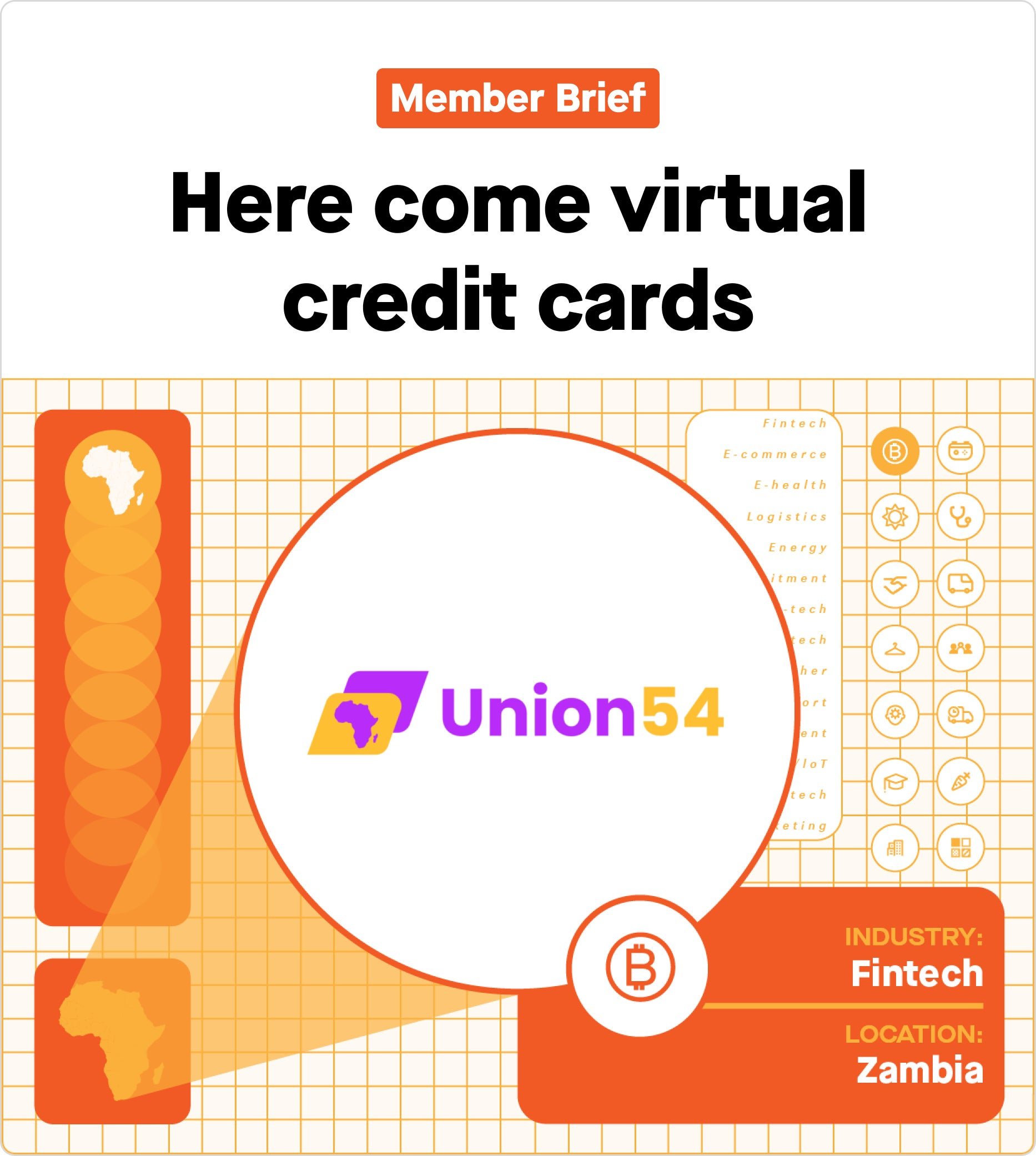✦ Here come virtual credit cards
Hi Quartz Africa members,



Hi Quartz Africa members,
Financial inclusion in many African countries depends on having access to traditional banking and credit cards. That’s even true for the rising fintech platforms. But the need for more payment options will only increase as the popularity of digital services does; more access to global supply chains, more e-commerce, and more costs associated with bank-aligned cards could ultimately push people toward newer forms of payment.
To capitalize on this momentum, a nascent set of startups is pushing what could be a significant decoupling of banks and payment options: generating their own credit and debit cards in virtual or physical form. Whereas acquiring physical cards linked to banks is usually a lengthy and expensive process, virtual cards are speedy, cheap, and convenient—and bypass the bank bottleneck.
For many financially excluded Africans, including those living outside urban centers, virtual credit cards may also be the only option available. That makes developing them a win-win situation for startups and potential customers.
Cheat sheet
💡 The opportunity: The rise of e-commerce on the continent, plus greater access to global supply chains, presents enormous upside for both buyers and sellers. But taking advantage of that upside still often requires access to bank-underpinned debit and credit cards.
🤔 The challenge: Credit and debit cards are only available to a minority of people on the continent. For example, only 10% of Zambia’s adult population use a debit card.
🌍 The road map: Virtual credit cards present an opportunity for fintech companies to make it easier for people to access cards by taking advantage of payment and mobile devices penetration.
💰 The stakeholders: Mobile money providers, e-commerce companies, fintech companies, finance institutions, digital companies, and consumers.
59%: African payments and remittances startups that are in Nigeria, South Africa, and Kenya
$543 million: Venture capital funding for payment and remittance startups from 2015-2021, out of roughly $900 million in funding for fintech startups
$2.2 billion: Venture capital invested in African startups in the first four months of 2022

The case study
Name: Union54
Union54, Zambia’s first Y-combinator backed startup, was founded in 2021 by Perseus Mlambo and Alessandra Martini—an entrepreneur couple—as a fintech spinoff from Zazu, a challenger bank they set-up about six years earlier. Challenger banks are niche specialists that offer distinct tech-backed financial services not available at major or legacy banks. Union54’s name is derived from the unification of Africa’s 54 member states, and represents the company’s ambition of spreading itself across the whole continent.
The couple’s initial venture, Zazu, relied on legacy banks to create debit cards for its users, and often faced lengthy delays and other challenges emblematic of dominant legacy banks’ failure to expand financial inclusion. With only 10% of Zambians using debit cards, the market is still dominated by cash, and card transactions are considered unlikely to increase.
Union54 found a simpler way: software that enables other fintechs and companies to generate their own cards in physical or virtual format. “Our approach is unique in that for the first time ever all of these fintechs that have done really well in their home countries can do an integration with Union54; they can wake up and offer their customers a debit card,” Mlambo says. “We are also able to process virtual debit cards for online and e-commerce payments. We occupy a really unique position in that we allow all of these fintechs to be able to introduce debit cards.”
Union54, which raised $12 million in a seed extension round in April, says 100-plus fintech companies and 20-plus websites are using its software. Mlambo says the latest funding will be used to expand beyond Zambia.
In conversation with
Perseus Mlambo is co-founder and CEO of Union54. He believes in the unbundling of banking, and debit- and credit-card access for all African consumers. Here are some choice quotes from our conversation:
🙌 On the Y-Combinator effect:
🔭 On other high-potential clients:
📜 On regulatory easing around fintech:
🛬 On fintech as a solution to Africa’s brain drain:
Fintech deals to 👀
CredPal, a Nigerian fintech startup, raised $1.5 million in 2020 to roll out credit cards across the country before securing another $15 million in 2022 to power up its Buy Now Pay Later (BNPL) enterprise. CredPal says as many as 85,000 customers have subscribed to its BNPL offering, which is available across 4,000 merchants.
pawaPay, a fintech company that amalgamates African mobile wallets into one API, raised $9 million in 2021 in seed financing. It will use the funds to boost its mobile money payments solutions talent, scale up operations, and claw into new regional markets.
Ugandan fintech, Asaak raised $30 million in January in a pre-series A round to accelerate product development and geographic expansion” for its boda boda (mobility and ecommerce delivery motorbikes) ownership financing venture.
🎵 This brief was produced while listening to Munyaradzi (Comforter) by Jah Prayzah (Zimbabwe)
Have a highly motivated rest of your week,
One 💳 thing
One of Africa’s largest telcos, Safaricom, recently announced the introduction of a virtual card in partnership with Visa. This virtual card will allow customers of M-Pesa, a Safaricom joint venture, to send or receive payment from almost anywhere in the world. Safaricom is one of Africa’s mobile-money frontrunners, with over 30 million customers and a network of 3.2 millions businesses that accept M-Pesa. The virtual cards, which effectively take M-Pesa global, will be available in June.